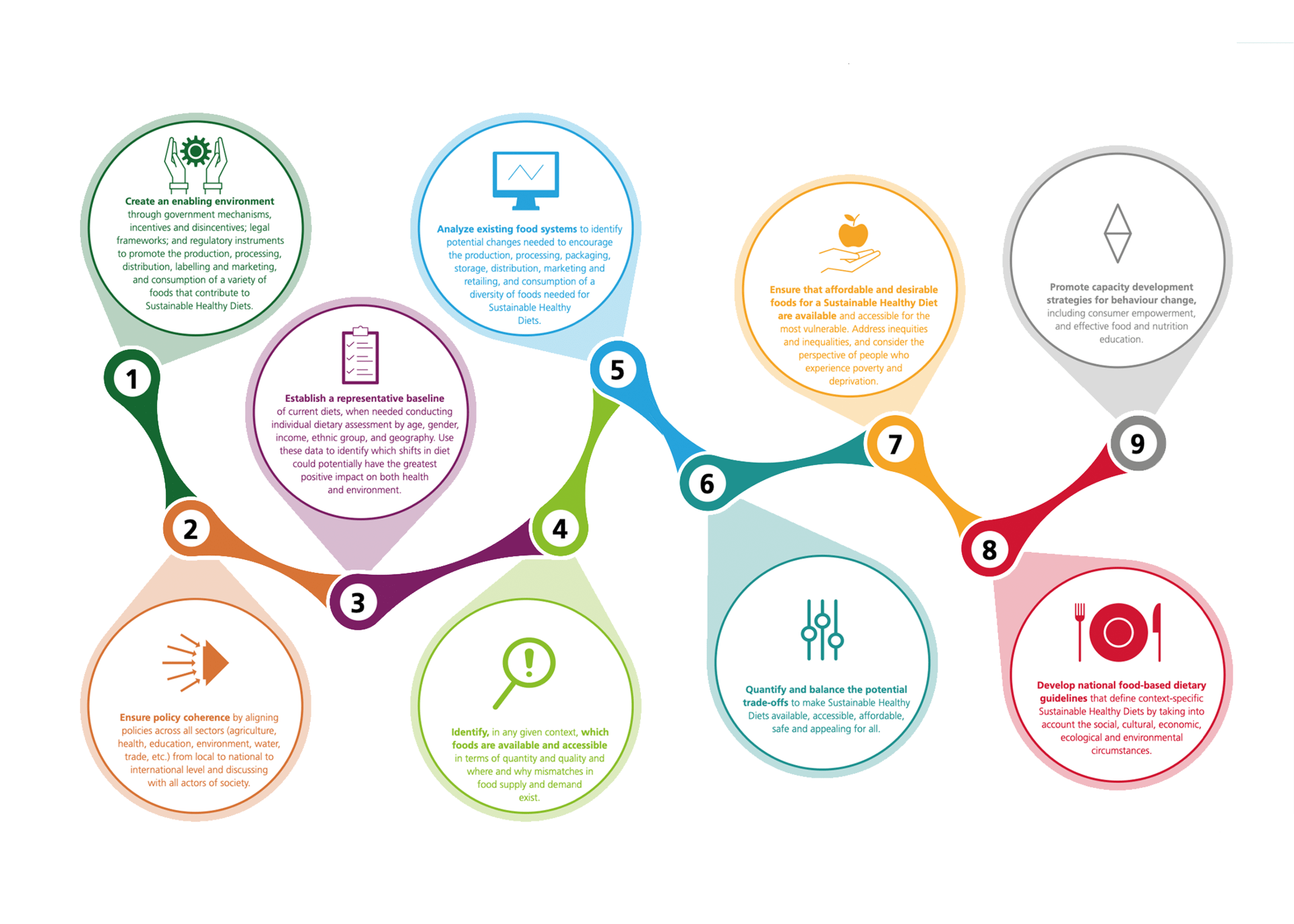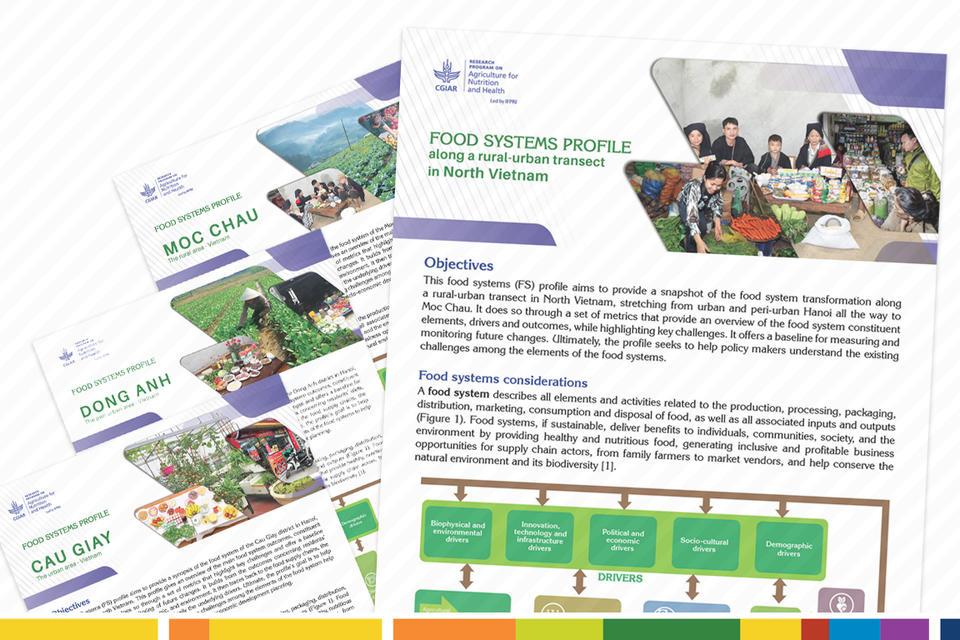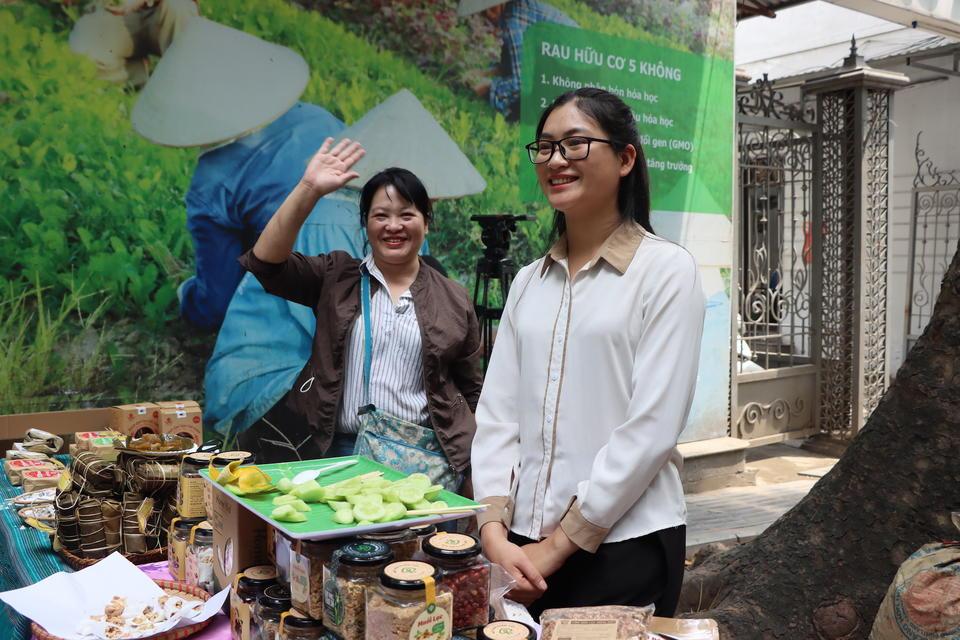Blog Highlighting the Alliance and ASEAN-CGIAR’s food systems transformation efforts in ASEAN University Symposium
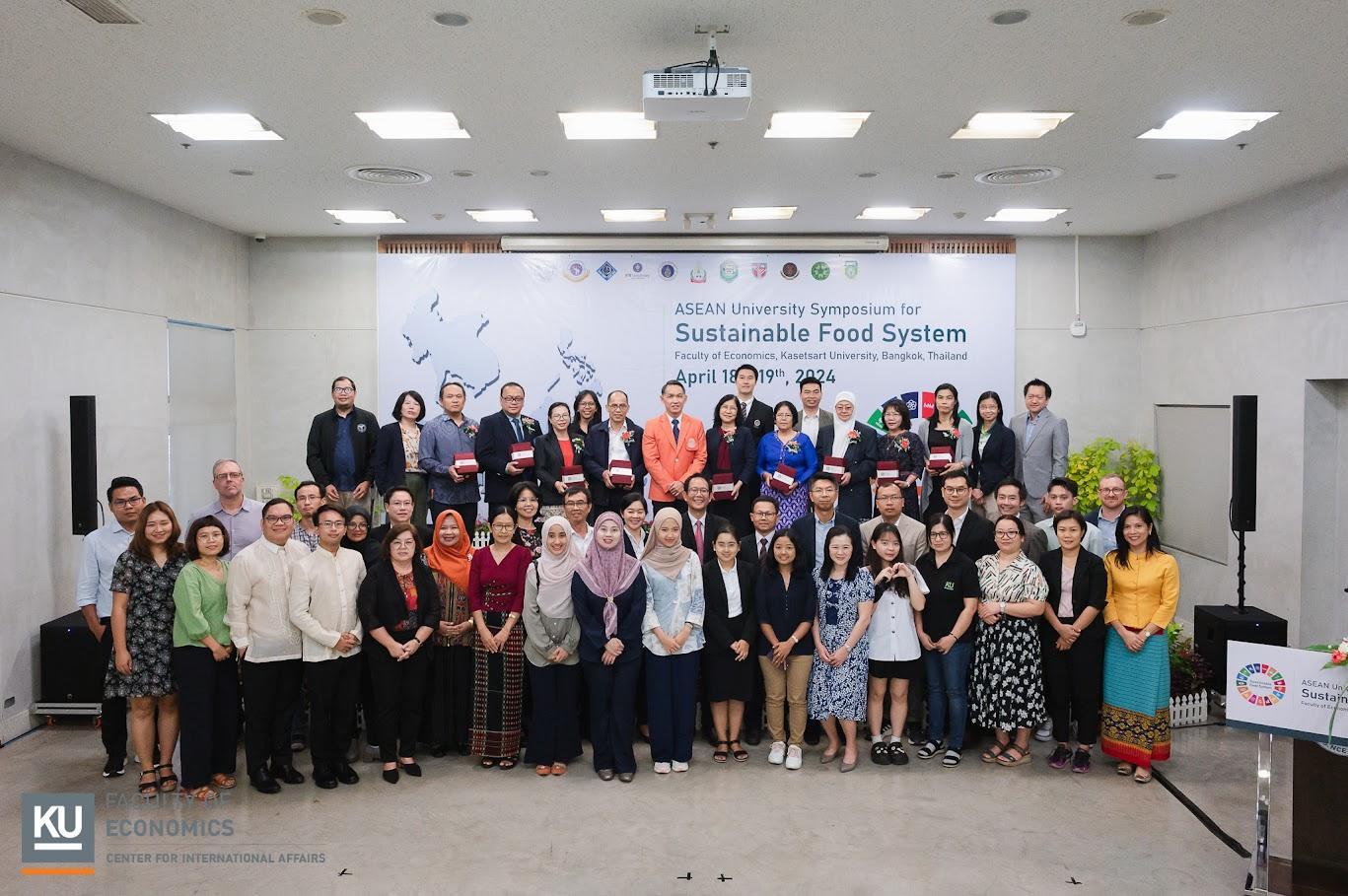
With the Alliance of Bioversity International and CIAT’s strong track record in leading initiatives and supporting actions toward transforming food systems pathways in Vietnam, Food Environment and Consumer Behavior (FECB) Research Team Leader in Asia, Tuyen Huynh, was the keynote speaker to share experiences from the work about food systems transformation and sustainable healthy diets at the ASEAN University Symposium for Sustainable Food Systems in Bangkok, Thailand.
The two-day forum, hosted by Kasetsart University’s Department of Agricultural and Resource Economics on 18-19 April, sought to share capacities and provide graduate students and young researchers with opportunities to actively contribute towards enhanced food security, improved nutrition, sustainable agriculture, and food systems transformation in the region through good and quality research undertakings.
Following a nine-point implementation plan, Huynh underscored the need to advance sustainable food systems and healthy diets as the triple burden of malnutrition (overnutrition, undernutrition, and micronutrient deficiencies) continues to confront ASEAN member states, slowing down potential contributions toward the 2030 sustainable development agenda.
Over the past five years, Alliance researchers have led in building synergies with various stakeholders to forge sustainable, resilient, healthy, and inclusive food systems. After the series of multi-level food systems dialogues in Vietnam during the COVID-19 pandemic, FECB team led and participated in various consultation workshops and training sessions to share expertise and capacities with multisectoral partners at the national and subnational levels.
“The Alliance of Bioversity International and CIAT is one of the international research organizations that have approached the Food System in Vietnam and worked with national partners to disseminate the concept. Its studies on Food Systems have contributed very positively to promoting Vietnam's participation in UNFSS dialogues and the development of the food systems transformation national action plan,”
Says Assoc. Prof. Dr Dao The Anh, National Co-convenor, Vice Director of Vietnam Academy of Agricultural Sciences.
“We appreciate the interdisciplinary research approach combined with capacity building on the Food System for Vietnam. This can be a model for cooperation between CGIAR towards a sustainable food system.”
Since 2019, the Alliance together with National Institute of Nutrition, Vietnam Academy of Agricultural Sciences, and others have supported the national government in establishing guidelines on implementing the nutrition-sensitive agri-food systems approach under the Zero Hunger National Action Program by 2025. Researchers have also mapped indicators along the food systems’ elements into the five objectives of the national program.
The FECB team in Asia also developed food systems profiles along the rural-urban transect in Northern Vietnam in close collaboration with the National Institute of Nutrition (NIN) under the framework of the CGIAR research program on Agriculture for Nutrition and Health to guide multi-stakeholder decision-makers in identifying more comprehensive and evidence-informed recommendations to address various challenges along the food systems, providing information for the UNFSS dialogues in Northern Vietnam in 2021. Under the CGIAR SHiFT initiative, the Alliance joined a collaborative process with the Academy of Agricultural Sciences (VAAS), Institute of Policy and Strategy for Agriculture and Rural Development (IPSARD), and NIN to contribute to the development of the National Action Plan for Transparent, Responsible, and Sustainable Food Systems Transformation (2022–2030). SHiFT researchers from the Alliance also partnered with IPSARD in reviewing existing food environment policies to better understand and identify ways to contribute towards the adoption of sustainable and healthy diets among Vietnamese food systems actors. All these initiatives were consistent with the Alliance’s commitment to support Vietnam’s National Action Plan on Food Systems Transformation towards transparency, responsibility, and sustainability by 2030.
From Vietnam to ASEAN neighbors
The Alliance continues to leverage its expertise in the region as it leads two regional initiatives contributing to sustainable foods systems transformation in the Southeast.
Under the CGIAR’s Asian Mega Deltas Initiative, FECB team co-designed training materials in Vietnam and conducted cross-country policy review on nutrition-sensitive deltaic agri-food systems in Vietnam, Cambodia, and Bangladesh. As the work targets to co-design nutrition-sensitive agri-food systems guidelines, FECB team partnered up with national platforms including Scale Up Nutrition network and engaged in One Planet Network’s Sustainable Food Systems Programme contributing to integration of nutrition-sensitive approaches.
The Alliance, along with the International Livestock Research Institute, also leads the Intervention Package 8 on food systems transformation for more nutritious and healthy diets within the ASEAN-CGIAR Innovate for Food and Nutrition Security Regional Program. Alliance researchers and partners are keen to sustainably improve the food systems value chain—from production, processing, distribution, and consumption in some ASEAN countries to attain better livelihoods and healthier diets for consumers.
Jongsoo Shin, Director of the ASEAN-CGIAR Regional Program said:
“The ASEAN-CGIAR Regional Program is committed to revolutionizing agriculture and food production in the ASEAN region through collaborative efforts and innovative solutions. By pooling resources and expertise, we aim to drive sustainable growth and resilience, ensuring a brighter future for all.”
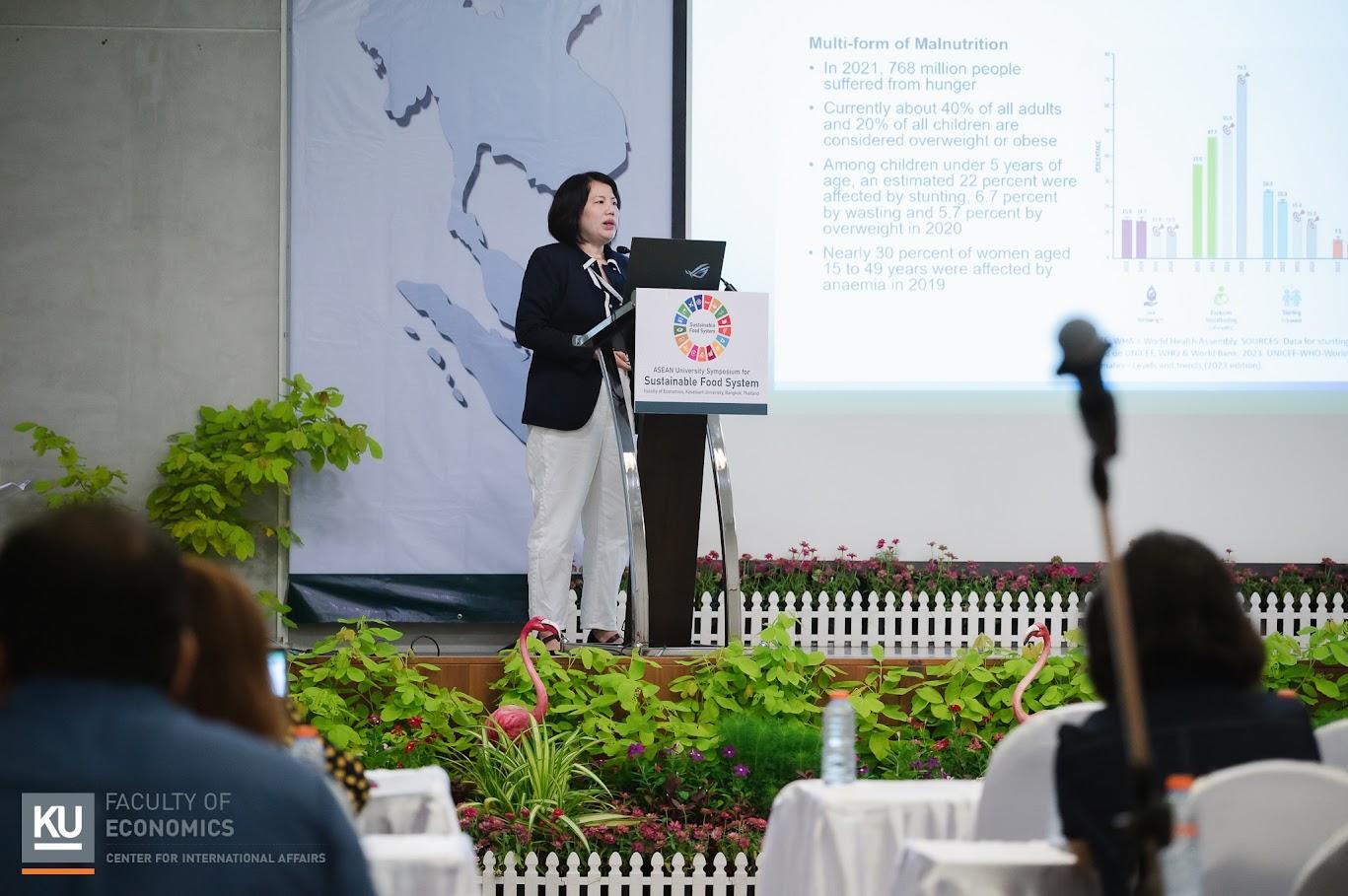
For Huynh, outputs under this intervention package could be a strategic and initial entry point to assess food systems in the priority countries, particularly Vietnam, and serve as a basis to improve awareness and knowledge on food systems and identify leverage points in food systems to promote healthy diets in the region.

